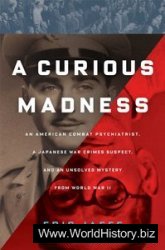Khrushchev faced his moment of truth in October 1956, when revolts against Moscow’s subservient regimes in Eastern Europe cast doubt on his key assumption of an irreversible progress toward Communism. From the evidence available now of what was going on behind the scenes, the Soviet response appears in a very different light than it did at the time. Once a nationalist leadership had taken control of the Polish Communist Party in the aftermath ofworkers’ riots, and gained widespread support in the country, Khrushchev’s instinctive reaction was to consider using force against "counterrevolutionaries." The main reason force was not used was the timely support for the Polish party’s independent course from Beijing, communicated to Moscow in no uncertain terms - striking evidence of the Chinese Communists’ rising role as strategists of international Communism as well as of disarray in the Kremlin.
The Soviet leaders had not entirely ruled out the military option when the Polish situation became overshadowed by the incipient collapse of Communist rule in Hungary. Moscow’s declaration on October 30 proclaiming its readiness to treat foreign Communist parties as equals and respect their countries’ sovereignty was a landmark in Eastern Europe’s transition from an appendage of the Soviet Union to an object of its foreign policy. The critical issue of the time was the possibility of Hungary following the example of Austria by choosing neutrality and other Communist countries following suit.
It was a measure of Soviet distress that the Kremlin did not rule out such a possibility. Even Molotov was briefly inclined to let Hungary go its own way, while Khrushchev was undecided. This time, however, the Chinese made clear their preference for intervention to save the country for Communism, and the Soviet decision not to intervene was reversed overnight. Even so, before troops actually moved in, Khrushchev found it advisable to consult with East European leaders and even undertake a grueling trip to Yugoslavia to solicit approval by Tito - a far cry fTom the self-confidence he had radiated earlier.
The coincidence of the intervention with the wrongheaded decision by British and French governments to invade Egypt in their dispute over the Suez Canal has encouraged speculation that the Western intervention made possible the Soviet one or at least justified it retrospectively. In reality, the connection between the two developments was quite different. The crackdown in Hungary was already in full motion when the attack on Egypt was called off in response to an American ultimatum. At this point, Moscow chose to issue its own ultimatum, demanding that the attack cease immediately and threatening to destroy London and Paris with nuclear missiles, which the Soviet Union did not possess.
Here was a new, and disturbing, face of Khrushchev - the author of the ultimatum. Not only did he claim credit from his colleagues for having turned back Western aggressors, but he also convinced himself that he actually did. To visiting Egyptian officials, he expressed his conclusion that the one "with the strongest nerves will be the winner."435 This was a dangerous self-delusion. Having proved a poor manager ofthe crisis he had unexpectedly had to face in Eastern Europe, Khrushchev showed a propensity for gratuitously creating an unnecessary crisis to divert attention from his shortcomings.




 World History
World History









